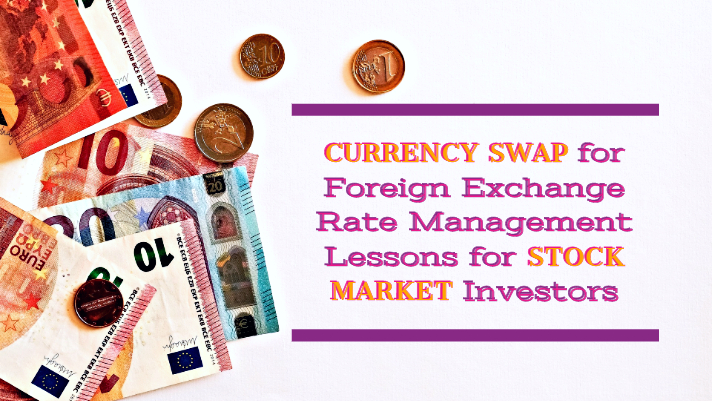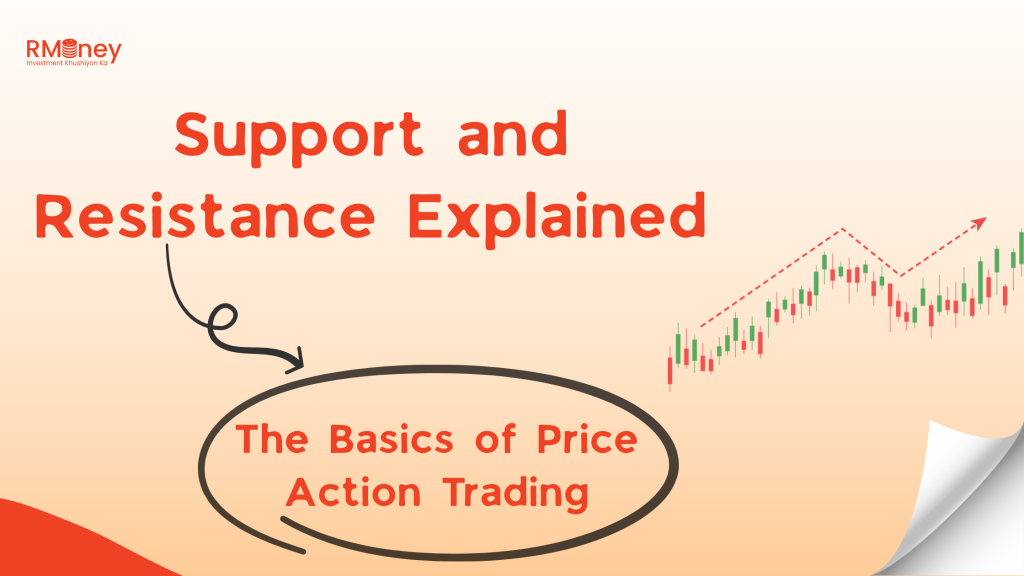The word swapping means to exchange. So, a currency swap is an agreement or a contract between the two parties. In such a swap they agree to trade their currencies at the preset up terms and conditions. Thus, a currency swap or a cross-currency swap is an off-balance sheet transaction. Here, two parties exchange principal amount and interest that incur in different currencies. The dual purpose of a currency swap is –
- To hedge exposure to exchange rate risk, or
- Helps reduce the cost of borrowing a foreign currency.
Currency swap can be done by the individuals and the companies who are sure about their future foreign currency needs. Also, who are willing to avoid the exchange rate risk. By entering into the currency swap agreement, they can lock the exchange rate mutually at which the swapping takes place.
Why currency swap?
Currency swapping is done by the individuals and companies primarily for two reasons:
- To hedge exposure to exchange rate risk
- To reduce the cost of borrowing a foreign currency.
The other and most popular form of currency swap agreement is between the central banks of the two countries. The swapping done by the central banks (RBI, in case of India) affects the economy and the exchange rates as well. It is primarily done for the following two reasons:
- To maintain the value of the foreign exchange reserve
- To get the foreign currency from the issuing central bank at the predetermined terms and conditions, i.e. the volume of the foreign currency and the exchange rate.
In general swaps last for a long time. It mainly depends on the individual agreement and the prevailing exchange rates. It is also a fact that the exchange rates change very frequently over time. This is one of the reasons why parties use currency swaps. Swaps are useful particularly to those who know exactly how much money they will receive or payback in the future.
How currency swap helps exchange rate?
The currency swapping arrangement between parties does not only support the domestic currency but also helps controls the exchange market to some extent. Such currency swapping mechanism also helps in avoiding the turbulence and other risks associated with the foreign exchange market and the exchange rates.
At times, when there is a deficit in the foreign currency, and its demand is high, it may lead to the depreciation of the domestic currency. These currency swaps agreements prove beneficial in these scenarios. Central banks ensure that there is an adequate flow of the foreign currency during the time of its deficit by swapping currency.
During the foreign currency crisis, there is often the turbulence in the foreign exchange market, and it may lead to the steep depreciation of the domestic currency. Currency swap mechanism helps to avoid all such situations.
Apart from providing stability to the exchange rates, these currency swaps agreements between two central governments also aim to fulfill the supplementary objectives. These objectives are:
- To promote the bilateral trade between the two nations
- Swapping maintain the value of foreign exchange reserve
- To ensure the overall financial health of the economy.
How does currency swap work?
The working of a currency swap agreement is straight forward. However, before understanding this, let us understand how currency swap differs from interest rate swaps. A currency swap is more or less similar to an interest rate swap. The exception is that in a currency swap there is an exchange of principal amount. But in an interest rate swap, there is no exchange of the principal amount.
On the trade date of currency swap, both the parties exchange notional amounts in the two currencies. Let us understand this with the help of an example. Suppose one party receives $10 million worth of British pounds (GBP). While the other receives $18 million worth U.S. dollars (USD). Thus, in this situation, the GBP/USD exchange rate of 1.8. In order to close the deal, they need to swap again with the same exchange rate at the end of the agreement.
An important consideration in every currency swap agreement is the payment of interest. During the whole of the term of the agreement, each party of the swap needs to pay interest periodically. They need to pay interests in the same currency as they receive the principal as a part of the agreement.
There is a number of ways they can pay such interests. They can pay it as a fixed rate, floating rate, or in other combinations. Combinations like one party may pay a floating while the other pays a fixed. Or if they may like they could both pay floating or fixed rates. However, on the maturity date, they exchange the initial principal amounts, reversing the initial exchange at the same exchange rate.
Example of a cross-country currency swap
Developing nations like India enters into currency swaps with the other countries like the USA, the UK, EU, and Japan. The currencies of these countries work as a medium of exchange in international trade and are, therefore, is a hard currency.
For example, recently India and Japan currency swap agreement is an excellent example to cite here. On 28th October 2018, India entered into the currency swap agreement with Japan. The deal involves the US dollar besides the INR and Yen.
This agreement is an excellent opportunity for India to obtain $75 billion by exchanging rupee to Japan. It is a multilateral swapping arrangement. The currency swap, however, can be bilateral agreement too.
With this currency swap agreement, the RBI will be in a better position to prevent the depreciating trend of the rupee against the dollar. With the inflow of US Dollar in the economy, the RBI can maintain the stable exchange rate between the US Dollar and the INR to some extent.
The currency swap mechanism thus has the following effect on the exchange rate:
- It provides stability to the exchange rate between the two currencies
- Currency swap prevents the depreciating trend of the domestic currency against the foreign currency
- It reduces the dominance of any hard currency at times thereby affecting its exchange rate and providing the stabilizing effect to the economy.
How knowledge of currency swap helps in stock market investing?
So, currency swap helps mitigate the risks from exchange rate fluctuation to the parties that do such an agreement. Now, how knowledge of any such currency swap agreement between listed companies going to help a retail investor at all? This is the primary reason to understand the very concept of currency swap and its relation with the exchange rate.
We all know that due to globalization major corporates across the globe do cross country trade. Each accounting year such companies have to either make lots of payments or receive payments from other countries. Indian companies, especially when we talk for listed companies, belonging to a sector, is no exception.
All such payments are made or received in any of the foreign currencies. And as we have seen above that exchange rate fluctuations have a very deep impact on the value of any such transactions. So, if you as a retail investor to any such company’s stocks know in advance that they have swap agreements from the cross border trade partners, it will help you a lot in making proper decisions. Decisions especially during the financial results announcements relating to your investments in any such stocks.
You will for sure be on the safe side with your long-term investments in the companies that have its large chunk of revenue in foreign currency or outflow of revenue in foreign currency. As due to swap, there will be no fluctuation in earnings due to exchange rates of such currency.
If you want to understand the concepts of currency swaps in details, here is an exclusive blog –

Stock Trading Now trade in ₹9 Per Order or ₹ 999 Per Month Plans.
Future & Options Access F&O contracts with advanced tools for hedging and speculation.
Currency Trading Trade in major currency pairs and manage forex exposure efficiently.
Commodity Trading Diversify Trading with MCX & NCDEX by Trading in Gold, Silver, Base Metals, Energy, and Agri Products.
Margin Trading Funding Boost your buying power with upto 5X, Buy now Pay Later
Algo Trading Back test, Paper Trade your logic & Automate your strategies with low-latency APIs.
Trading View Leverage Trading View charts and indicators integrated into your trading platform.
Advanced Options Trading Execute multi-leg option strategies with precision and insights.
Stock Lending & Borrowing Earn passive income by lending stocks securely through SLB.
Foreign Portfolio Investment Enable NRIs and FPIs to invest in Indian markets with ease and compliance.
IPO Invest in upcoming IPOs online with real-time tracking and instant allotment updates.
Direct Mutual Funds 0% Commissions by investing in more than +3500 Direct Mutual Fund Scheme.
Corporate FDRs Earn fixed returns with low-risk investments in high-rated corporate fixed deposits.
Stocks SIPs Build long-term wealth with systematic investment plans in top-performing stocks.
Bonds & NCDs Access secure, fixed-income investments through government and corporate bond offerings.
Depository Services Safely hold and manage your securities with seamless Demat and DP services with CDSL.
Journey Tracing our growth and milestones over time.
Mission & Vision Guided by purpose, driven by long-term vision.
Why RMoney Platform Smart, reliable platform for all investors' needs.
Management Experienced leadership driving strategic financial excellence.
Credentials Certified expertise with trusted industry recognition.
Press Release Latest company news, updates, and announcements.
Testimonials Real client stories sharing their success journeys.
7 Reasons to Invest Top benefits that make investing with us smart.
SEBI Registered Research Trusted insights backed by SEBI-compliant research.
Our Technology Advanced tools enabling efficient online trading.
Calculators Access a suite of smart tools to plan trades, margins, and returns effectively.
Margin Calculator Instantly check margin requirements for intraday and delivery trades.
MTF Calculator Calculate MTF funding cost upfront to ensure full transparency before placing a trade.
Brokerage Calculator Know your exact brokerage charges before placing any trade.
Market Place Explore curated investment products and trading tools in one convenient hub.
RMoney Gyan Enhance your market knowledge with expert blogs, videos, and tutorials.
Performance Tracker Track our research performance with full transparency using our performance tracker.
Feedback Share your suggestions or concerns to help us improve your experience.
Downloads Access important forms, software, and documents in one place.
Locate Us Find the nearest RMoney branch or service center quickly.
Escalation Matrix Resolve issues faster with our structured support escalation process.
Back Office Log in to view trade reports, ledger, and portfolio statements anytime.
Account Modification Update personal or bank details linked to your trading account.
Fund Transfer Transfer funds instantly online with quick limit updation to your trading account.
Bank Details View our registered bank account details for seamless transactions by NEFT, RTGS or IMPS.
How to Apply IPO Step-by-step guide to apply for IPOs using your trading account.
RMoney Quick Mobile App Trade on-the-go with our all-in-one mobile trading app.
RMoney Quick login Quickly access your trading account through the RMoney Quick web-based trading.
RMoney Rocket Web Version Experience powerful web-based trading with advanced tools for algo traders.
RMoney Rocket Mobile Version Trade anytime, anywhere with our feature-rich mobile trading platform.




















